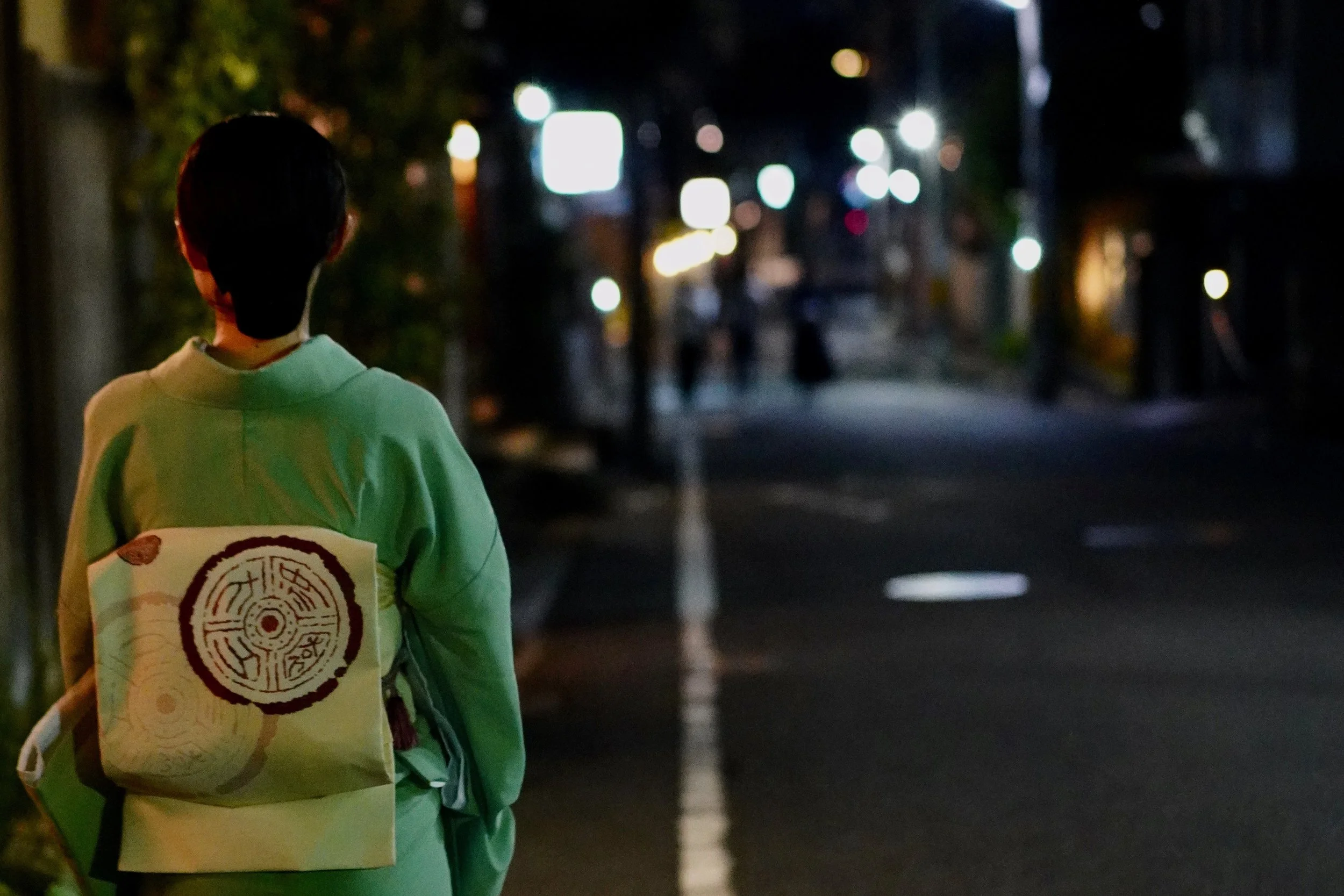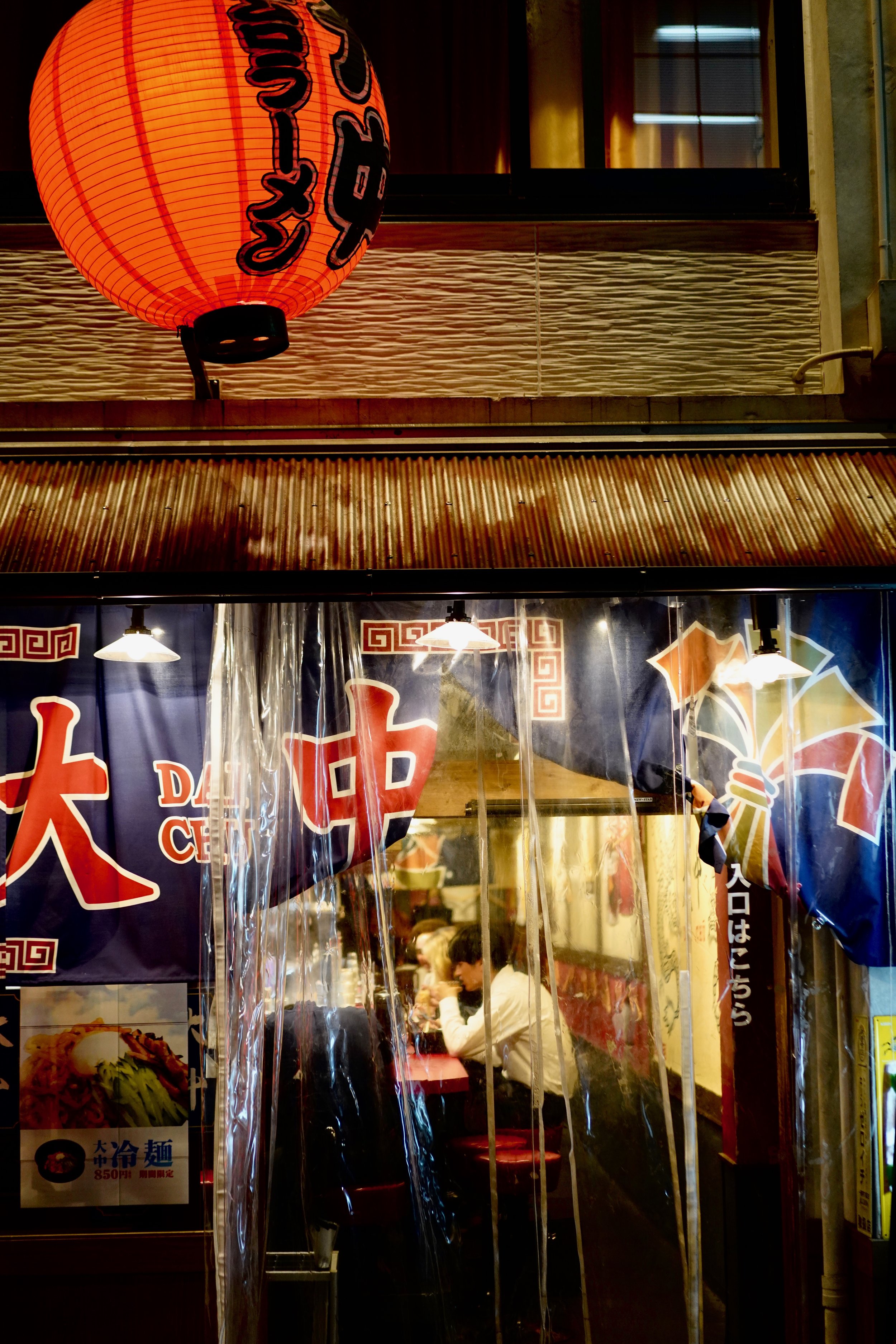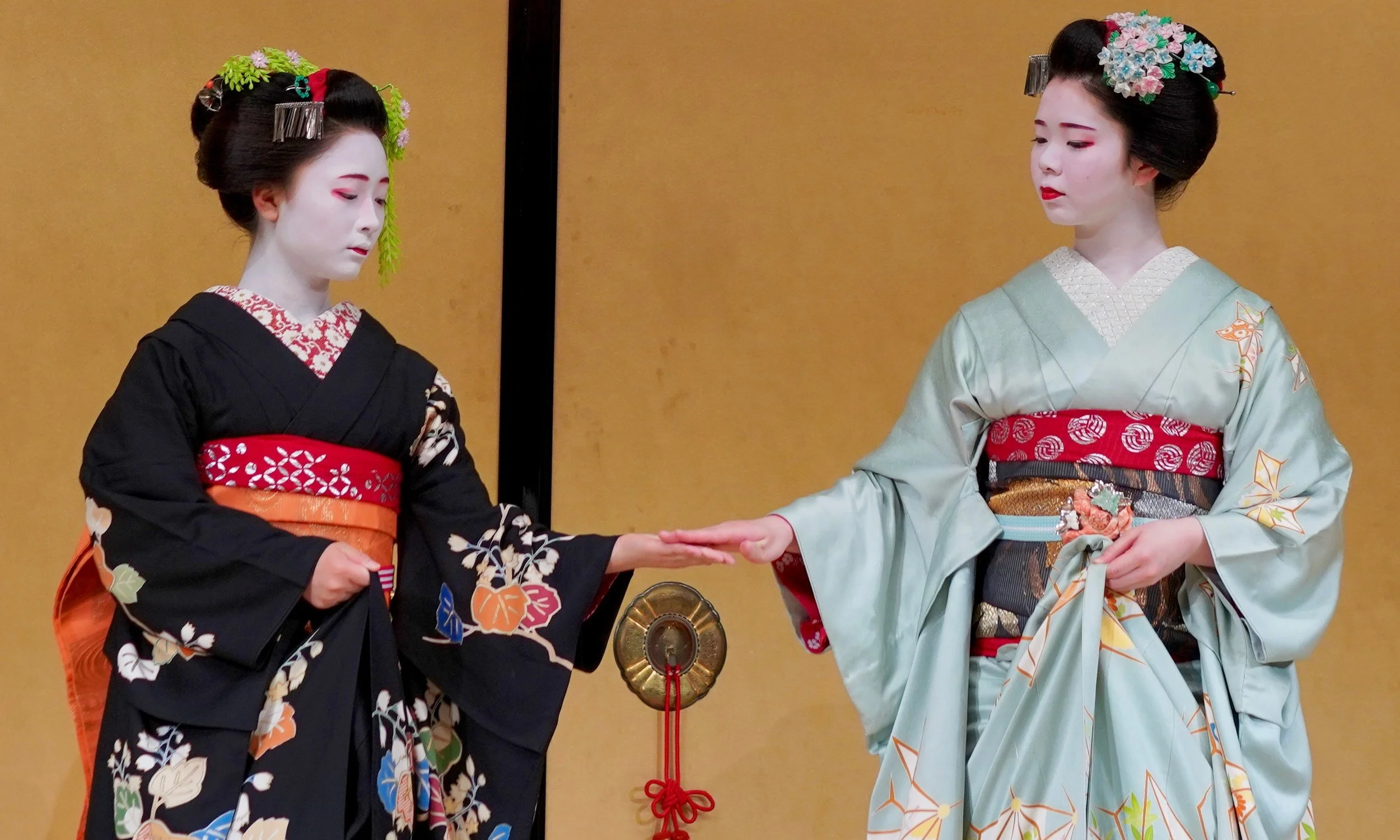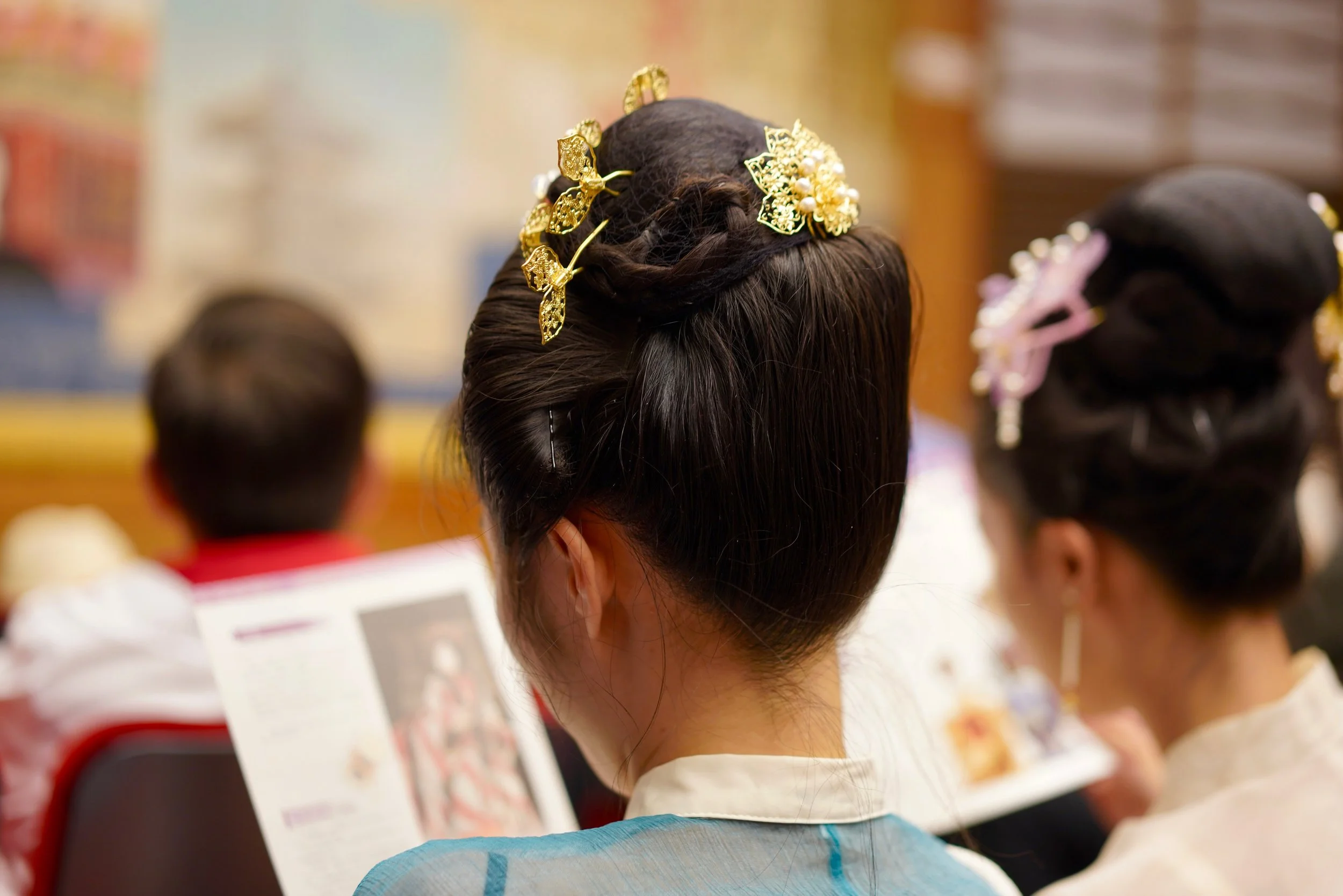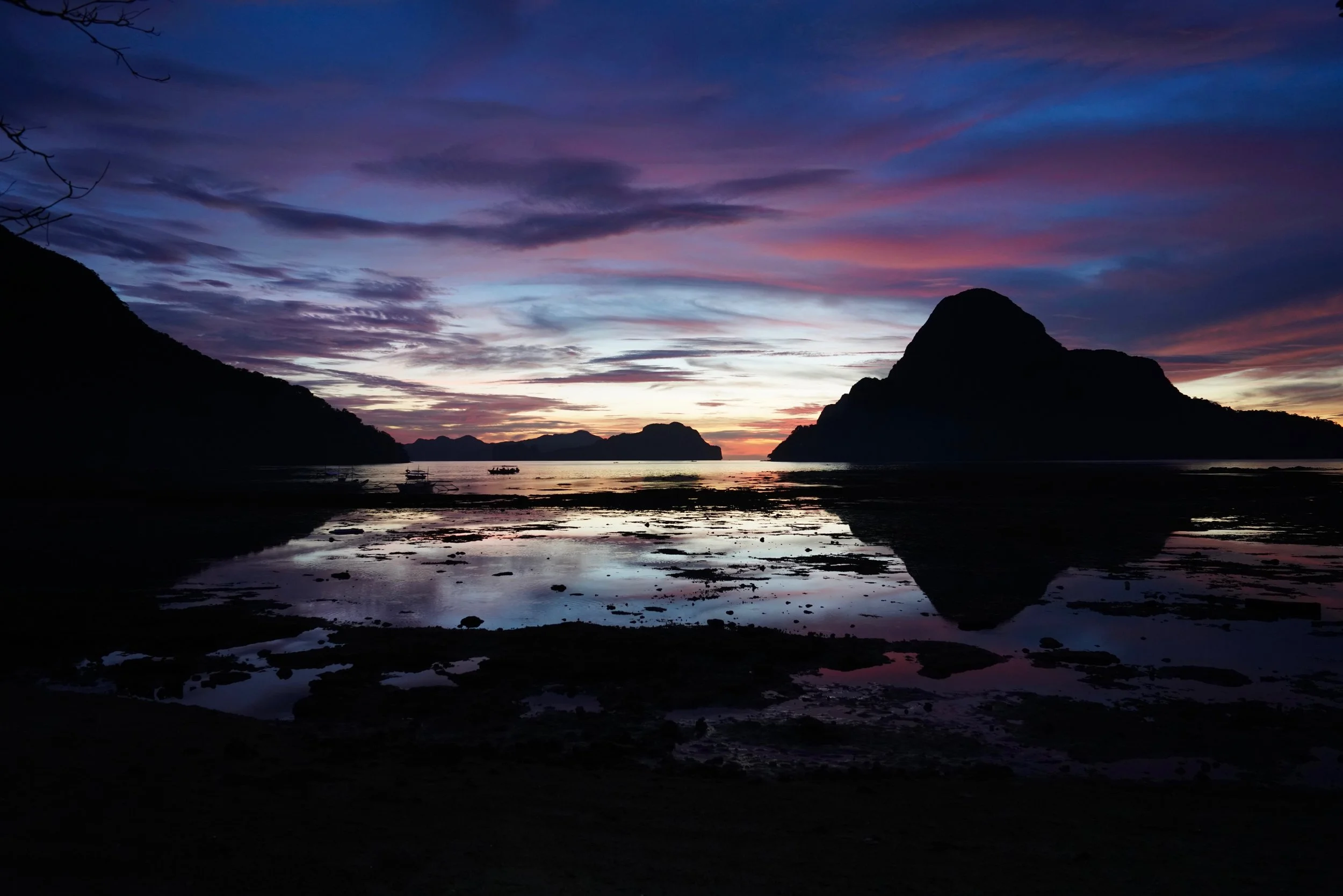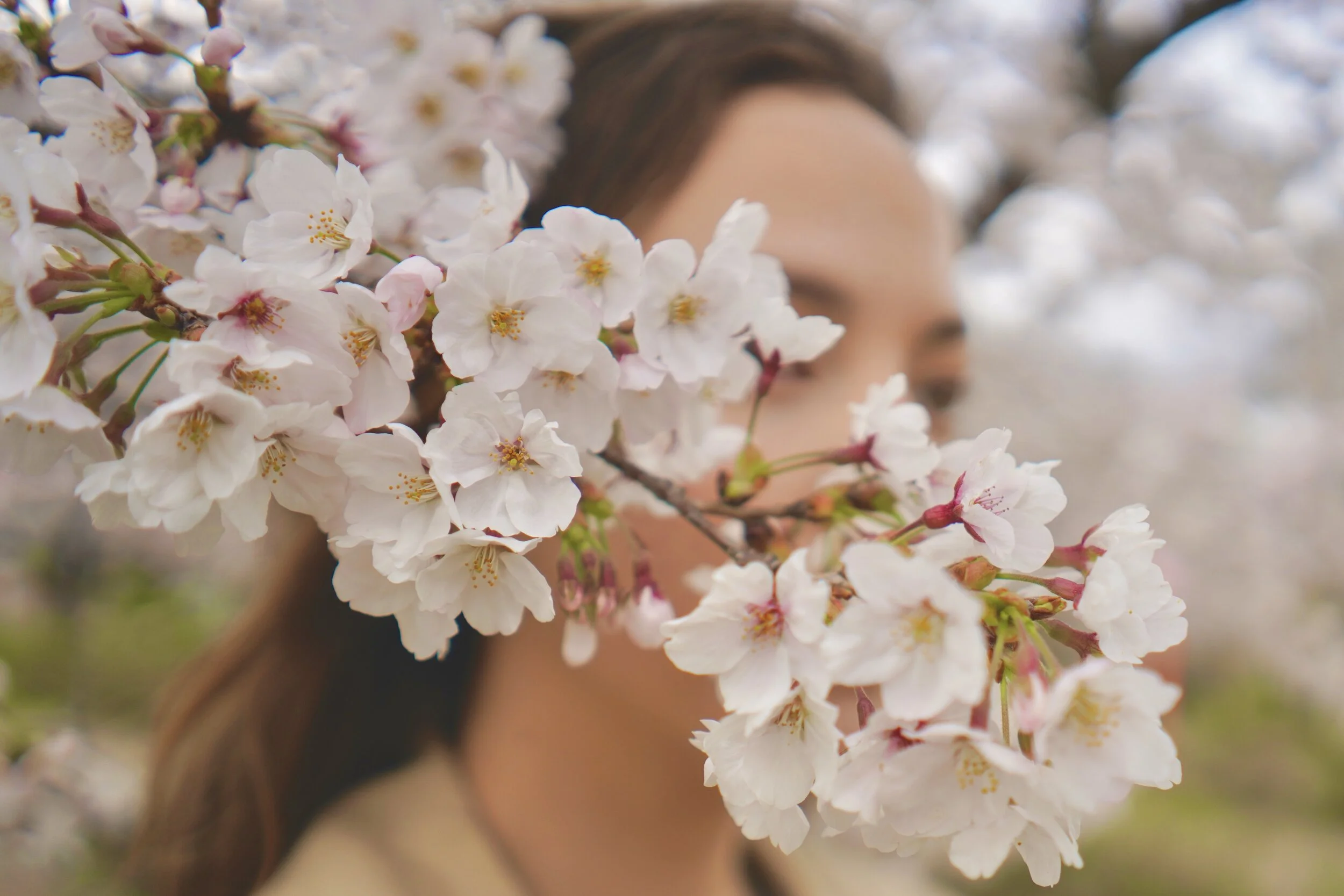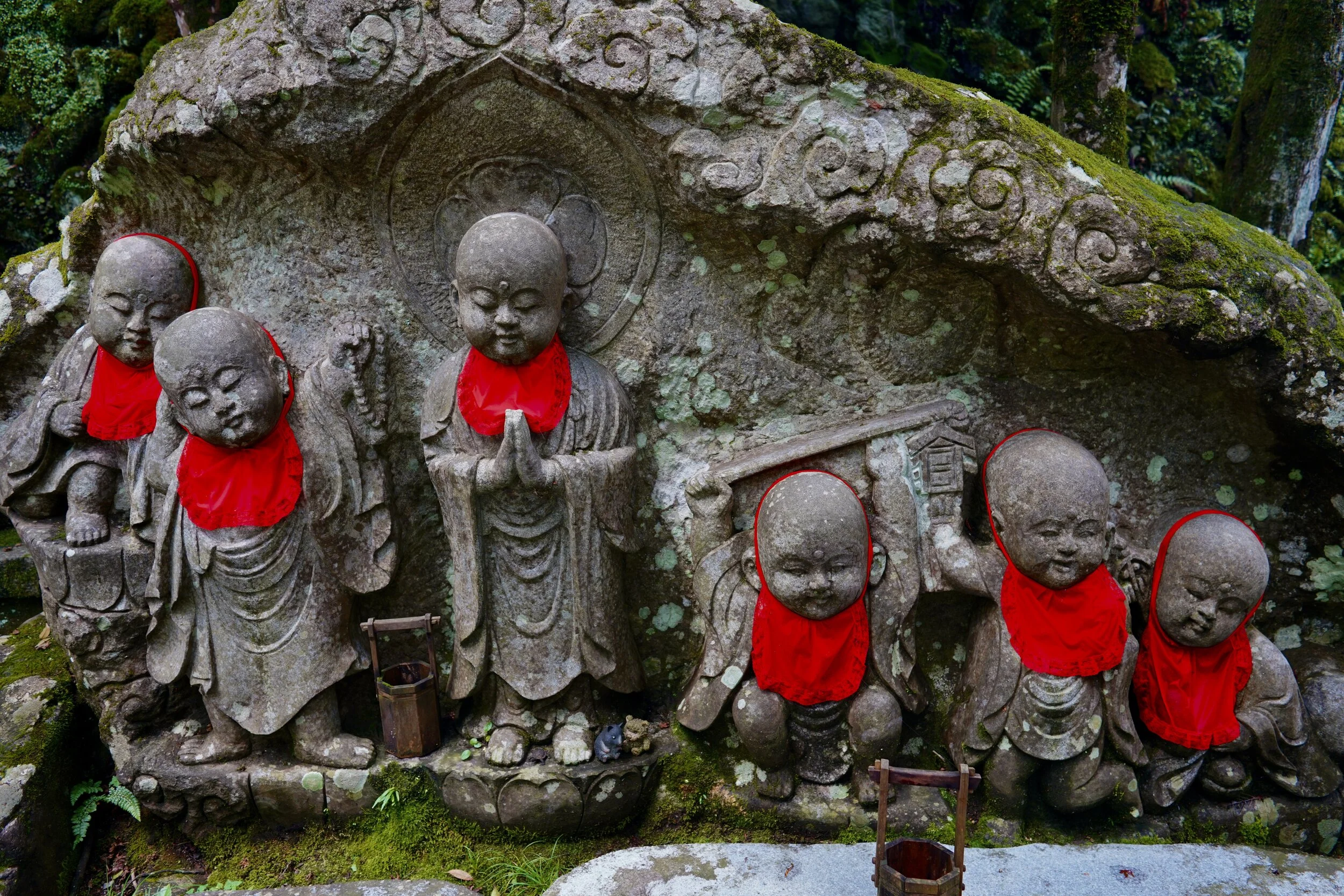The Wind Through Trees
Psithurism (n.) The sound of the wind through trees.
I can see the wind sailing across the surface of every leaf, bending branches and bringing music to the air. My hair rises with the breeze, up and off the nape of my neck. I breathe deeply. Wind cannot be seen or heard until it makes contact with an object, until it intertwines itself within trees. I am reborn when I make contact with the world, when I intertwine myself within a place unlike what is familiar to me. Jeremy and I are sitting alone on a park bench in the Shinjuku prefecture of Tokyo, a canopy of centuries-old trees port da bras-ing over us, and everything is quiet except for the orchestra of the wind. We have finally arrived at the bittersweet ending of this mind-blowing, life-changing, world-wide marathon. I am feeling the wind and I am smiling.
We flew over Manila’s skyline, up and over the sapphire sea, with the sky softening to night, shadow-by-shadow. Candle-lit clouds, rolling tides of fading sunlight and cumulus formations, just like the heavens. I began to follow the faint powdering of Osaka’s city lights from my airplane window. Jeremy and I rode the midnight train to Kyoto, foggy street lights and Japanese businessmen passing by. We checked into our pint-sized home for the next five days; an ultra-modern, high-tech capsule hotel situated in the very heart of Kyoto. Our “keys” were iPod devices, which controlled everything within our individual sleeping pods, even our morning alarms. My dreams weren’t jolted by typical, barking sounds. Instead, I was delicately nudged to consciousness by my bed rising ever-so-slowly from flat to upright position and my pod’s brightness growing from darkness to a dim, easy glow.
Restlessness still pulsing through our veins, we set off to stroll down the drowsy, slumbering streets. Shops were shut down, but boxes of artificial light poured from the door frames of a few bars and fell onto pristine pavement. Japan maintains a shockingly unprecedented standard of cleanliness, so much so that I would willingly eat off of these streets. I felt safe and sluggish, as I snapped shots of night scenes set back between doorways and stamped by shadows. I could forever wander the magical streets of Kyoto every night and still never discover a single lackluster note. As we cut through another veiled alleyway, our spontaneous, easygoing footsteps guided us across a world that exists separate from the rest. Jeremy and I were floating within a fantasy; captivated by everything haunting and mysterious surrounding us. We were swept right off of our feet, souls ignited and eyes widened.
As each day orbited to night, we embraced the soul-stirring, evening air of the city. Kyoto braids the old with the new, the traditional with the modern. You can disappear down one street, the smooth melodies of jazz seeping through the cracks of multi-leveled buildings, then you can shift course, veer left, and suddenly you’ve stepped back hundreds of years. If you’re lucky, you may even brush past a geisha, ghost-like and ethereal, with an ivory-painted face and crimson-drawn lips. She is reserved, yet powerful, a beacon of distinguished beauty.
I was fifteen years old when I first flew across the vast Pacific and visited The Land of the Rising Sun, with my parents and my brothers by my side. I met the warm, yet unfamiliar faces of my distant relatives, and my Obachan (Grandma) was the very heartbeat, connecting all sides of a family as one. She sat tall, centered between everyone, translating Japanese to English and back again, while pride flooded her eyes. My beloved Grandma has since left our world, but here I am eighteen years later, and I felt a sudden, strong pull to try to reach out and recreate that moment for her. She may have shuffled some cards from her view up above us, but somehow fate brought my family back together. Jeremy and I sat in the lobby of our Tokyo hotel, my heart keeping a steady rhythm of nervous excitement, as four faces sweetly approached and asked me, “Tera-san?”
I believe perfection of any kind does not exist, and yet somehow, Japan is perfect. Honor is the very fabric of this country, and such a virtue is not always highly-regarded or bravely pursued by us humans. However, when you observe the entirety of one society functioning with a deep-rooted righteousness, something shifts, and it is powerful. I’m honoring myself and others differently than before. It’s as if a switch has been flicked on, and I wake up and go about my day with a reawakened, more virtuous skip in my step.
Jeremy and I are nestled within rows of stiff airplane seats once again, and are finally crossing over the beautiful, blue Pacific waters, retracing the curve of the earth back to California. I count how many airplanes we’ve been on since January, as the infinite Los Angeles skyline comes into view, and I realize we have flown 30 times. I can see the wind slipping over the wing, a visible stream of air rising and diving, lifting and falling…
…and just like the wind, an experience will raise you to the sky and you will become consumed by it, and then it is gone with your next breath. Jeremy and I have lived as wild pioneers, six months drifting by like a gentle gust, now settling behind us. I guess all you can do is breathe it in, and hold it for a moment. Eventually, you have to exhale, letting it all go, just as the trees do.
I exhale… and I am changed forever.
Kanpai,
Tera


